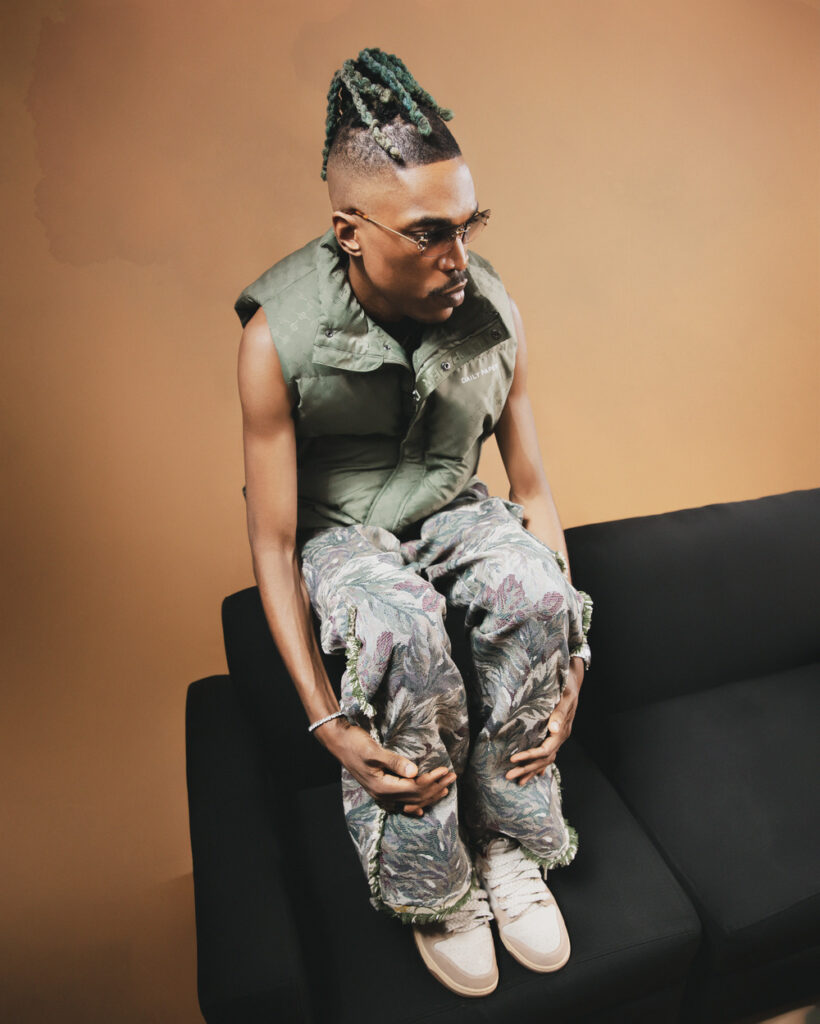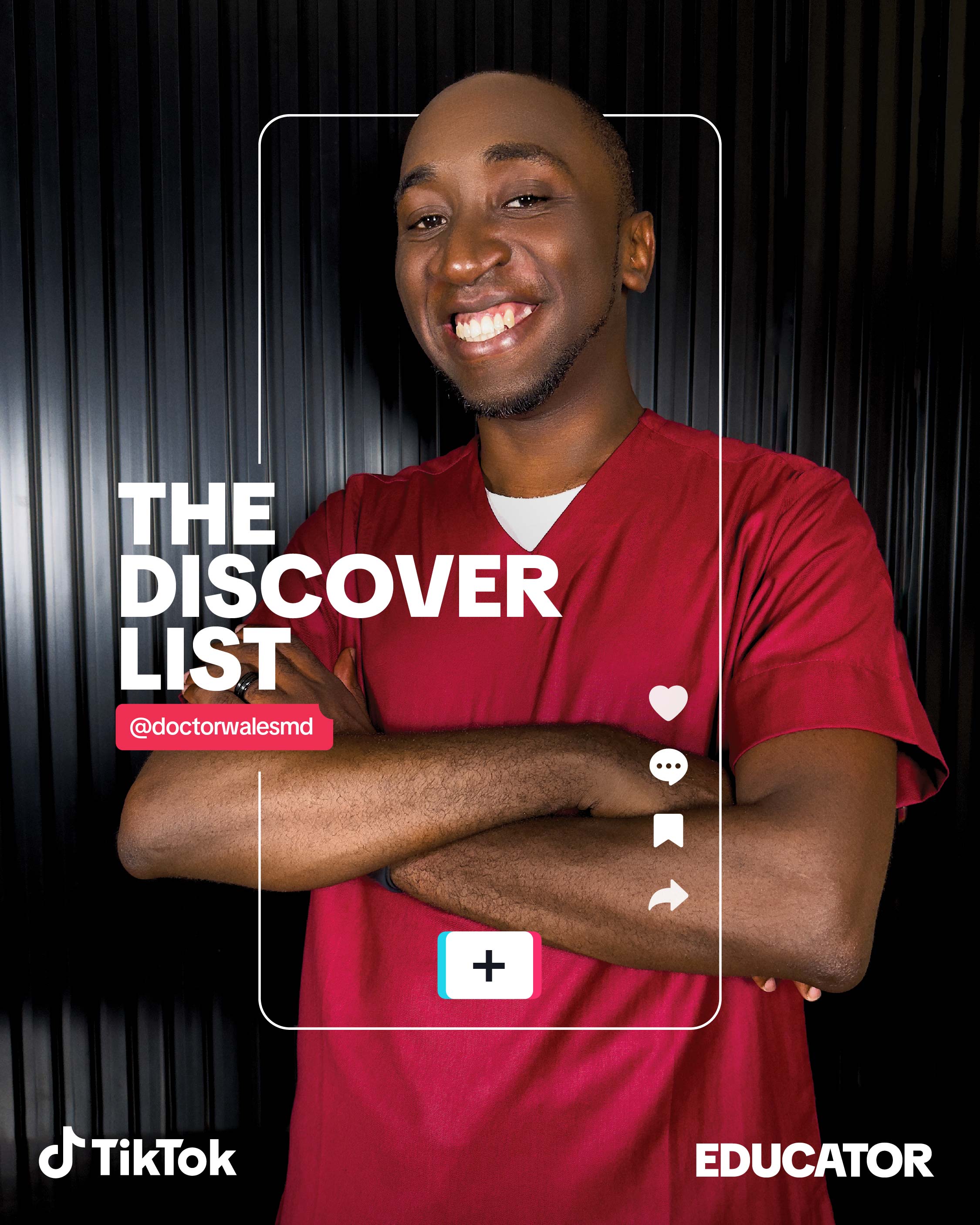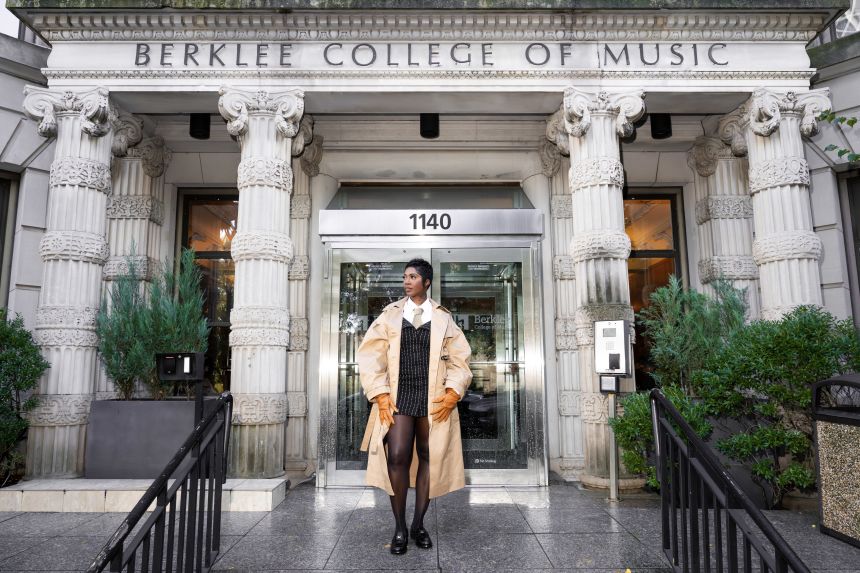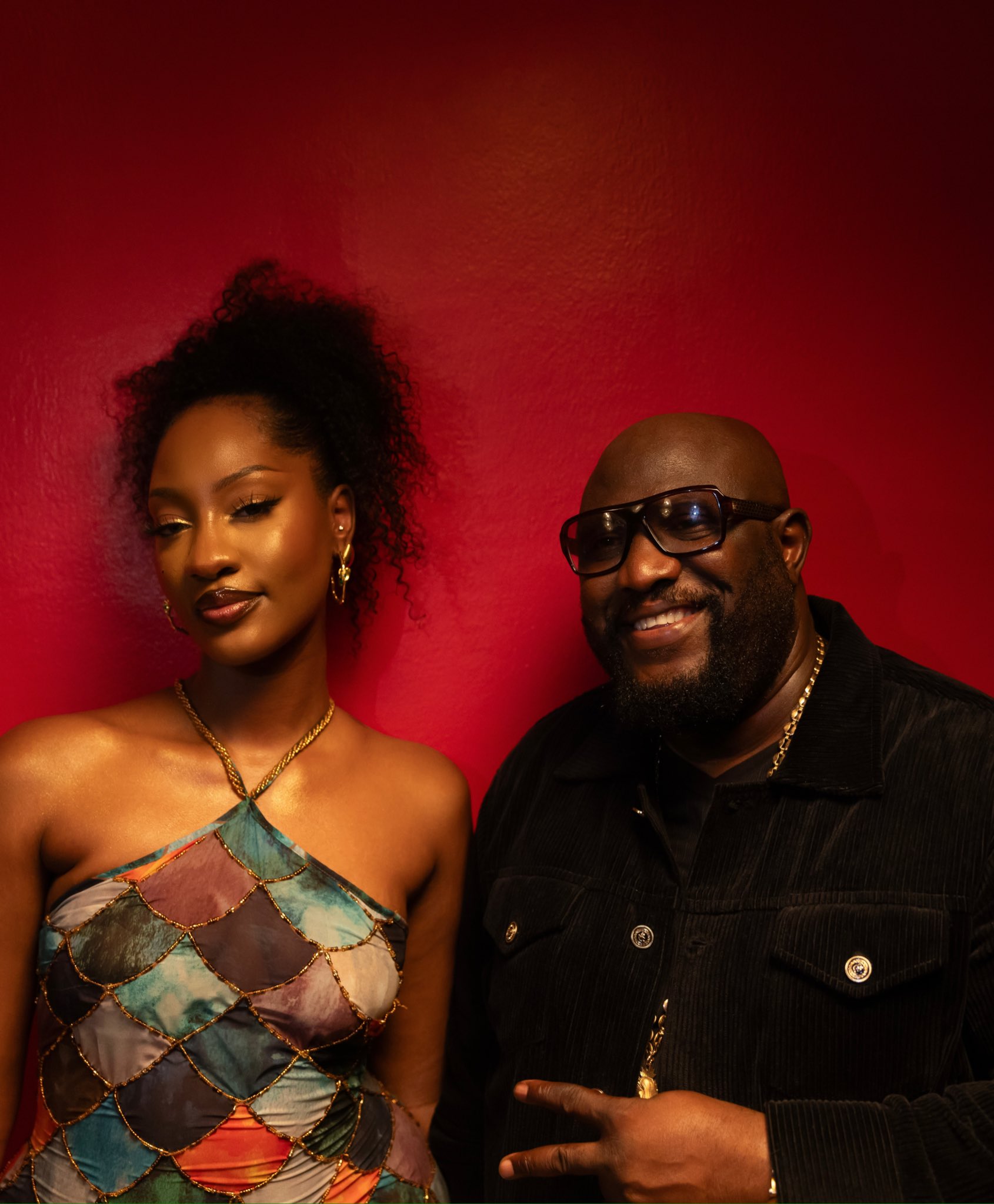
DJ Six7even didn’t grow up dreaming of turntables—but he always knew one thing: the corporate grind wasn’t his portion. What began as a spontaneous step into the booth soon spiraled into an all-consuming love affair with sound. No backup plan. No rearview mirror. Just beats, instincts, and a refusal to follow the script.
Fast forward to now, and David Etuk—better known as DJ Six7even—isn’t just spinning tracks; he’s crafting moments, championing Amapiano long before it became Nigeria’s dancefloor obsession, and proving that versatility is his secret sauce.
In this conversation with Upper Entertainment’s Hodovai, we track the rhythm of his rise, unpack the shifting culture of DJing, and explore what the future sounds like for one of the scene’s most exciting selectors.
TUE: What inspired you to become a DJ, and how did your journey begin?
DJ SIX7EVEN: It all started after graduation during NYSC. I used to make mixtapes for myself while studying because I didn’t want anyone touching my music. I discovered Virtual DJ and started playing around with it. In NYSC camp, they needed someone to play at the parade ground, so I volunteered. People loved it. That was the first moment I thought, “Maybe I can do this.”
I never wanted a regular office job, and I was drawn to the passion and excitement of DJing, getting people to vibe, and seeing them happy. From there, I just started chasing it.
TUE: After NYSC, how did you take things to the next level?
DJ SIX7EVEN: I knew I had to move from just making mixtapes to becoming a professional DJ. I did a lot of research, reading books, watching YouTube, you name it. I found out that I needed a residency, a place to play regularly. In 2016, the hottest thing was radio, so I got my first residency at City FM.
I was on radio for about three years before I got my first club gig. In that time, I played at private events, lounges, and clubs on the mainland. I started meeting celebrities the likes of Yemi Alade, Ice Prince and Niniola when they came for interviews. But I knew the industry was really popping on the island, so I had to make that move.
I’d put my deck in my car and drive to the island, looking for a spot to play. Nobody wanted to give me a chance. One day, I went to Skybox in Lekki, and the owner was looking for a DJ. He asked me, “Where have you played?” Nowhere. “What have you done?” Nothing. But I told him I could DJ. My gear was in my car.
That night, I gave a sterling performance. He loved it and gave me a residency.
From there, people started noticing me. I got my first club residency at Buzz Bar around late 2018, and from there, I just started shutting it down, and my career took off.
TUE: Did you have any influences—DJs or artists who shaped your sound?
DJ SIX7EVEN: Definitely. I linked up with DJ Neptune at SoundCity. He played every Friday, and I would go from the mainland to SoundCity just to watch him. He was super hospitable, a great guy. I also met DJ Consequence, who put me on in 2017. I played at his party, and that gave me exposure.
My first major industry gig was a Moët & Chandon event in Banana Island. It was a high-end, champagne lifestyle party, and they wanted house music. That’s when I started gaining a reputation for playing house at Buzz Bar.
TUE: Was there a moment when you knew, “Yeah, this is it for me”?
DJ SIX7EVEN: Many moments. But in the early days, I wasn’t even looking for a sign. It was just pure passion. I loved DJing. Seeing people vibe to my set, especially when they couldn’t Shazam a track, those moments gave me a high.
The big green light came when I started my first residency. That’s when I realized I was meeting top industry names regularly—Wizkid, Anthony Joshua, DJ Cuppy, Mr. Eazi, Olamide. From my residency at Buzz Bar, I had about 5 other residencies at some of the top clubs in Lagos and West Africa
Then came my first international booking in Ghana, my first tour with Buju (Bnxn) in Europe in 2022. We did four cities—Madrid, Paris, Berlin, and Amsterdam. I met Uncle Waffles, Lojay, Ruger, Omah Lay, and Erykah Badu. That exposure solidified it for me.
TUE: Let’s talk about your sound. You started with house music, then amapiano blew up. How has your style evolved?
DJ SIX7EVEN: In Lagos, every DJ starts by playing everything—Afrobeats, trap, old school, 2000s hits, house. But I always had a deep love for house music. It shaped my style at my first residency. I started making mashups, mixing deep house, progressive, electronic, and Afro house.
In 2019, I was in Dubai when I first heard Amapiano. I was like, “What is this?” Did my research, came back to Lagos, and started playing it immediately. People didn’t know the sound, but they couldn’t stop grooving.
The first amapiano song to blow in Nigeria was Untold Stories by Vigro Deep, then Jebson, then Caltonic. I was part of the early DJs pushing the movement. By 2020, during COVID, Amapiano exploded and became unstoppable.
That’s when I got the nickname “Amapiano God.” People knew me as the guy playing what they hadn’t heard before. But I didn’t stop there. I evolved into dance music—Afro house, three-step, and piano. That’s my niche now.
With Nigerian artists now collaborating with South Africans on piano tracks, the sound has fully integrated into our scene. That’s the evolution of my craft.
TUE: Talking about your mixes, I know you have a couple of mixes out on DSPs. How do you approach that? Even when you’re performing, I know sometimes you’re given a brief—like if you’re booked to play house or amapiano. But on a regular day, how do you decide what to play, especially for a crowd you might not have an idea about yet?
DJ SIX7EVEN: First of all, a crowd that I won’t have an idea about—that’s impossible as long as there’s a booking. You must always do your homework. Who’s booking me? What’s the party? Is it a wedding? An event? A rave? A club? A private event? A fashion event? Where is it in the world? That would always be known.
When I started evolving from amapiano to Even in the Day to dance music, I had already built a reputation for who I am—electrifying mixes, electrifying sets, crazy nights, and everything.
As you grow, your bookings change. You start charging higher, the brand gets stronger, and your exposure widens. The bookings become more intentional—like, I want you in Johannesburg to play house or I want you in this club tonight to play amapiano.
Not all bookings come with strict instructions, though. That’s why doing your homework before the show is key. That’s the pre-show prep, knowing what you want to give the audience.
TUE: So, when you’re actually at the event, how do you adapt? What happens if there are multiple DJs, and maybe someone before you has already played what you planned?
When you meet me or see me in person, my name automatically sticks to my brand. Six7Even comes from my height—I’m 6’7” anywhere in the world. People always ask, “Oh, you’re so tall, what’s your height?” And when I say 6’7″, they immediately get it.
DJ Six7even- 2025
DJ SIX7EVEN: By God’s grace, we are blessed to have some fans around the world who already know what they’re coming for. Consistency is key. I can’t be playing trap and afrobeats today and then tomorrow switch to amapiano and house. Where do you stand? You get? So I’ve already moved past that.
But yeah, when I get to an event and there are four other DJs before me, sometimes they disrupt the playlist, trying to play everything they think I might play. That mostly happens with show promoters who aren’t very intentional.
I’m flexible enough to read the crowd and adjust. I pay attention—Okay, this was the last DJ’s set. This is what I’m going to do now. But I will still take the crowd on a journey and bring them back to where I want them to be. It has to feel levitating, electrifying. Yeah.
TUE: You’ve performed in different places, both in Nigeria and outside the country. Are there any performances that were particularly unforgettable for you?
DJ SIX7EVEN: Yeah, yeah, yeah, there are a couple!
One was the Afrobeats Festival in Berlin, Germany. The energy was insane. It was a two- or three-day festival—Wizkid headlined the first day, Davido the next. The day I was playing, it was Erykah Badu, Buju (BNXN), Ruger, and Omah Lay on the lineup. So, when it was time for my set, they told me, “Go set up.”
I got on stage, and there was a crowd of about five thousand people. No music, no sound—just background noise, everyone waiting. The moment I said, “Hey Berlin, what’s good?” the reaction was like, “Let’s gooo!” I was like, Ah, so these people dey with me? I played the first song, and from there, it just went crazy.
Another big one was playing for Yves Saint Laurent in Johannesburg. It was the Crème de la Crème of the Crème de la Crème in SA. It was me, Durban Gogo, and Sonel. That was a really good one.
Paris was lit too. And also playing for Rema at the O2 Brixton in London in 2022, that was crazy. I had 30 minutes to warm up the crowd before his set, and the energy was insane.
Even in Lagos, Even in the Day (the all-white edition) was special. The energy was off the roof.
TUE: With all these great performances, I’m sure you’ve had moments where things didn’t go as planned. Every career has learning curves. Was there any performance or gig where you faced a challenge or had a major learning moment?
DJ SIX7EVEN: Some gigs might not go as planned, only a few, though. Most times, it’s not even about the performance itself; it’s usually the promoter, the rider, or miscommunication.
And this is an important point because in this part of the world, I’m not trying to downplay, but there’s a lack of professionalism in how DJ sets are handled. It’s getting better, though, because DJs are now standing up for their worth, earnings, and rights.
It’s not just about paying the DJ for the gig, it’s also about the rider, call time, and logistics.
I remember a particular gig where they gave me a call time but then delayed my set for six hours. I mean, that can’t happen now.
That was a learning curve. Communication is key. The sound engineer must ensure the sound in that space is levelled properly because no matter how good your set is, bad sound will ruin it. Also, technical riders, logistics, and crowd reading, those are all things I’ve learned to be more intentional about.
TUE: Let’s talk about your brand. From the name Six7even to the pineapple-head branding, there are a couple of things that stand out. Can you walk me through your branding process and what makes you unique?
DJ SIX7EVEN: When you meet me or see me in person, my name automatically sticks to my brand. Six7Even comes from my height—I’m 6’7” anywhere in the world. People always ask, “Oh, you’re so tall, what’s your height?” And when I say 6’7″, they immediately get it.
As for the Pineapple Head thing, it’s my hairstyle, how I pack my dreadlocks. It just naturally sits like a pineapple, and people started calling me that. I also dye my hair green sometimes, so the whole pineapple idea stuck. Most of these names come from fans, and once they do, I just roll with it.

TUE: The Six7even name. When did you decide to use it, and why the unique spelling?
DJ SIX7EVEN: Before Six7Even, people used to call me Obago in school because I was a huge Phyno fan, and one of my favorite songs was Obago. But when I started DJing seriously, I felt DJ Obago wasn’t working.
Since people always asked about my height, 6’7″ became a natural nickname. It was easy to remember and pronounce. But I didn’t want it to be just 67 or Six Seven. I needed something catchy. So I swapped the ‘S’ for a 7, and that was it.
TUE: DJing in Nigeria has evolved over the years. From when you started in 2016 to now, what technological advancements or trends have influenced your craft and how do you see the DJ setting/community now?
DJ SIX7EVEN: Man, first off, everyone is a DJ now, but that’s another topic (laughs). There are two sides to this: the technological and the people side.
On the technology side, DJing has evolved massively. Before, it was hard to get acapellas for live sets, but now, with Serato Stems, you can easily extract vocals, instruments, and beats separately. Apple even just launched a DJ software in collaboration with Serato that lets you DJ directly from Apple Music.
This has made DJing much smoother, whether for live events, mixes, or social media. The ability to manipulate sounds has helped blow up DJs and refixes, especially on TikTok.
On the people side, there are way more DJs now. Every year, new DJs are popping up, which is great because it shows the industry is thriving. But the downside is that many new DJs lack patience in developing their sound. They all end up sounding the same because they don’t take time to define their craft.
TUE: Do you have any pre-performance rituals, things you do before a set, maybe superstitions?
DJ SIX7EVEN: (Laughs) Nothing like that, bro. Just prep for your gig, get a fresh haircut, look sharp, smell nice, pull up with your squad, and shut it down!
TUE: With the industry constantly evolving, how do you challenge yourself to stay ahead and keep improving?
DJ SIX7EVEN: First off, I have a great team. My management keeps me on my toes. They always send me new songs, updates, and trends. They’ll hit me up like, “Have you heard this record? Check this out.” That really helps.
But beyond that, I just love DJing. No one wants this more than I do. This isn’t work for me, it’s passion. If I don’t listen to music in a day, I don’t feel normal. Whether I’m outside, on a flight, or just chilling, my reflexes are tuned to music. That constant exposure keeps me sharp.
TUE: On a personal level, how do you balance the demands of being a DJ? The nightlife, constant travel?
DJ SIX7EVEN: To be honest, I don’t even see it as work-life balance because I do what I love. I’ve never worked a day in my life! (laughs).
But as I started growing, I realized there’s more to it; meetings, planning events, negotiations. Negotiating deals is something I had to learn because getting the best value for your craft is key. Again, shoutout to my team for that. It was a learning curve, but now it’s second nature.
TUE: Let’s talk about Even in the Day. How did it start, and how has it remained relevant after two years?
DJ SIX7EVEN: Even in the Day came from my name—Six7Even, Even in the Day. It started when my manager, Dafe, and I were in London. We had some records with Victony and Musa Keys, and we thought, “Let’s create experiences, not just parties.”
When I got back to Nigeria in 2022, we decided to push it. It wasn’t easy, finding venues, investing our own money, taking losses. We didn’t get sponsors for the first year. But we kept pushing, and people started noticing the authenticity of what we were building.
It was fresh, it was new, and it wasn’t something people had experienced before. DJs, hype men, and our partners started supporting, and now we’re two years in, still growing.
TUE: As a creative, it’s important to connect with your audience beyond just your DJ sets. How do you stay engaged with your fans?
DJ SIX7EVEN: I connect with them through music. Beyond the DJ sets, I’m pretty active on Snapchat, I can be a hilarious person (laughs). I also drop music mixes from time to time, do Q&As, interviews like this, and editorials where people get to know more about me. That’s how I stay connected.
TUE: The first quarter of the year is over. What are your plans for the rest of the year? Any collaborations, projects, or more Even in the Day events?
DJ SIX7EVEN: There’s a project in the works, maybe more music, but I won’t let the cat out of the bag just yet. Watch this space!
TUE: If you weren’t a DJ, what would you have been?
DJ SIX7EVEN: Honestly? I don’t know. Maybe a comedian (laughs). But I just knew I wouldn’t be working a 9-to-5 in an office.
TUE: What advice do you have for aspiring DJs, someone who looks up to you and wants to follow in your footsteps?
DJ SIX7EVEN: First of all, let the passion drive you. Don’t get into DJing because you see it as an alternative source of income or just a way to get popular. Start with a love for the craft, what you listen to, and what excites you about DJing.
Take your time. Learn how to mix properly. Study the art of blending sounds. When you’re ready to introduce yourself as a DJ, make sure you have the right team, people who truly believe in your vision.
You might not find them immediately, but energy attracts energy. Keep your eyes open, and when an opportunity comes, grab it.
TUE: Final question: When people hear the name DJ SIX7EVEN, what do you want them to think of? What legacy do you want to build?
DJ SIX7EVEN: I want to leave a lasting DJ legacy from this part of the world. I want to pave the way for DJs to break out of just being seen as a part of the music industry and be fully respected as artists.
DJs should have better bookings, pay, proper riders, and recognition. The goal is to see DJs earning platinum plaques, Grammys, and getting global respect. That’s what I want to be remembered for.




